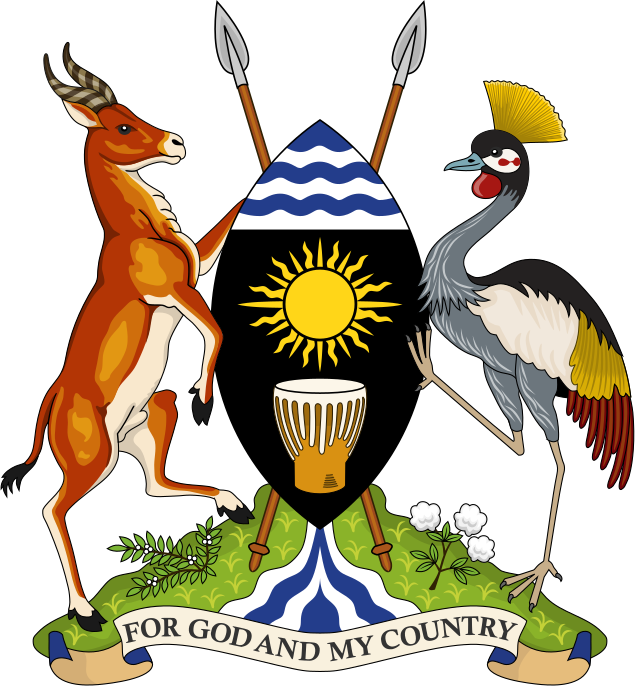ANOTHER ARUA CITY MADE GIN KILLS IN DR CONGO

In a concerning turn of events, a locally manufactured gin from Uganda has reportedly claimed several lives in the Eastern Democratic Republic of Congo's Ituri Province.
This comes into the limelight as the Congolese authorities are seen demanding a thorough investigation into the lethal effects of the alcoholic beverages, prompting a cross-border dialogue between the two nations.
The situation raises questions about the quality control, regulatory oversight, and illicit trade routes surrounding these products.Congolese Authorities want an immediate intervention into the investigations of a Sacket waragi and a bottled gin that have reportedly claimed several lives in the eastern Democratic Republic of the Congo’s Ituri Province.The Congolese authorities have alleged that these dangerous alcoholic beverages, packaged in 120-ml Sackets and having a 40% alcohol content, have claimed lives in their region.
Additionally, Opaki Gin, packaged in 100-ml plastic bottles and labeled for export only, is implicated in the controversy.
These products are manufactured by Premidis LTD, located in Arua district, Uganda's West Nile region. However, despite their labeling, these products lack certification marks from the Uganda National Bureau of Standards (UNBS).The Congolese delegation led by the administrator Aru Territory Richard Mbambi Kingana Kitabakulu and the President of the Manufacturer’s Association in Ariwara town under Ituri Province in Eastern Democratic Republic of Congo Magendo Nyati Nobert and Banio Debho Daniel, the Deputy National best known as a Member of Parliament who together presented exhibits of the suspected poisonous gins to Ugandan officials received by the Resident District Commissioner Maracha Buga Matata, Uganda police force representatives and the Uganda revenue Authority’s regional supervisor customs in west Nile region and the Members of Parliament from Maracha district among others where the two authorities met to discuss parchment issues affecting security, trade and development.In their argument, the Congolese authorities alleged that the suspected poisonous liquors identified as ZED packaged in 120 mls of 40% volts, Tyson Premium Waragi of the same characteristics are in sackets, whereas Opaki Gin of 100 mls packed in Plastic bottles is noted to be for export only and is manufactured by Premidis LTD, located on plot number 88 in Kulva under Arua district in Uganda’s West Nile region.However, despite the fact that the gins were labeled to be in Arua district, they do not carry any of the certification marks of the Uganda National Bureau of Standards (UNBS).Presenting the status report on the magnitude of the challenge paused by the liquors, Magendo Nyati Nobert, the President of the manufacturer’s association, noted that the dealers of this Alcohol do not use designated routes for exit and entry into the DR Congo, while on the other hand, they have their collaborators who help them in the exportation of the waragi to the DRC.The Congolese Authority Presents Samples of the Killer Arua City-Based GinMagendo Nyati Nobert the President of the manufacturer’s association in Ariwara Town Under Ituri Province of the Eastern DRC.mp3He asked the Uganda National Bureau of Standards and the Uganda Revenue Authority to give explanations as to why such products should be allowed for export into the DR Congo. Without giving figures on the number of deaths caused by alcohol, Nyati said several people have silently died after consuming the alcohol, which comes from Uganda.
“I would like to ask the one in charge of revenue if the wine or the alcohol of 100mls exists in Uganda, the second one is the alcohol put in kavera and the other one is the one which is written for export only but it is not going officially. Do you know something about it or not? Because it’s killing the people in Congo.” Nyati explained"
Magendo Nyati Nobert, SpeakingHowever, Ugandan Authorities asked for some time to give responses as they investigated the allegations to a logical conclusion.
Buga Matata, the Resident District Commissioner of Maracha District, requested an additional week for the Ugandan authorities and entities directly monitoring the manufacturing industry and movement of goods to investigate and appropriately respond to the allegations.“Within one week, Chairman and security officials our secretariat should make those things ready so that we respond to these issues and we need harmony,” Buga stated
Buga Matata the Resident District commissioner of Maracha District .mp3Jenifer Driwaru, Woman M.P Maracha District, says the porosity of the border points continues to influence illegal transits and migrations. She therefore asked both delegates from the two countries to devise harmonious means of trade.
“We have to go back on drawing board and get better responses and take this dialogue to another higher level in order to harmonize some of these issues” Driwaru said
Driwaru Jenifer Maracha District Woman MP.mp3
Key To Note:
Last year, a locally manufactured gin in Arua city identified as City 5 Gin claimed several lives and left 17 people in Madi Okollo, Arua districts, and Arua city dead after consuming the gin. According to the UNBS laboratory analysis results, the gin was excessively adulterated with methanol, far higher than the permissible level of 50 milligrams per liter. Three suspects were arrested and charged with Manslaughter under the criminal file of Arua CRB 869/2022.The cross-border controversy surrounding Ugandan-manufactured gins and their alleged lethal effects in DR Congo highlights the importance of robust quality control, regulatory compliance, and collaborative efforts between neighboring nations. As both countries strive to address this serious issue, the safety and well-being of their citizens must remain at the forefront of discussions. The outcome of the ongoing investigation and subsequent actions will undoubtedly shape the future of cross-border trade and security measures in the region.
By Dramadri Federick, Dailywestnile.info